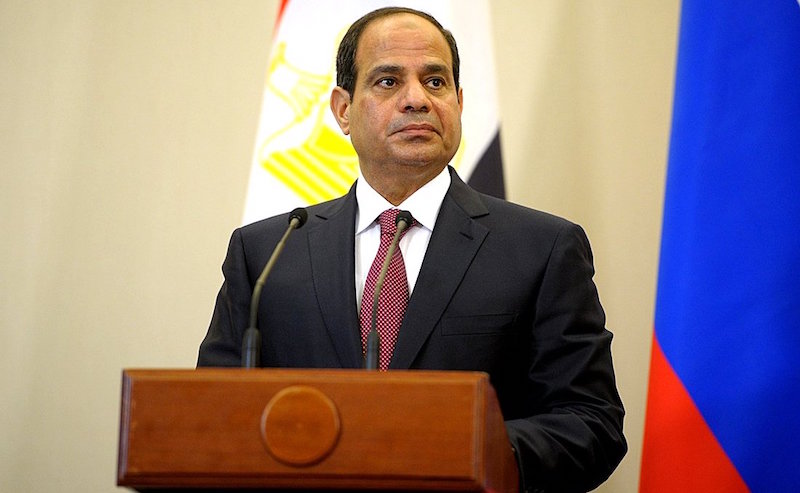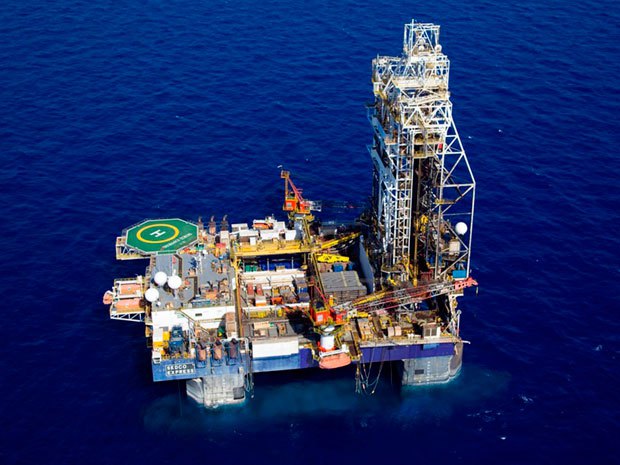On August 11 2016, Chris Jarvis, head of the IMF Mission to Egypt, confirmed a long-awaited deal by the Egyptian government:
“in support of the government’s economic reform program, the Egyptian government, the Central Bank of Egypt (CBE) and the IMF team have reached a staff-level agreement on a three-year Extended Fund Facility (EFF)”.
The EFF, a US$12 billion loan, will only be officially transferred once the IMF executive committee approves the financial program. The Egyptian government must also secure US$5 to US$6 billion from bilateral partners before the deal can be completed. With financial aid expected to come from Gulf States such as the UAE and Saudi Arabia, negotiations will likely reach a conclusion in the forthcoming months.
The deal comes as a great relief for the Al-Sisi government, which has struggled to maintain economic growth and stability since it forcibly came into power in 2013. Increasing inflation, dwindling foreign investment, and a surging budget deficit are among several reasons the Egyptian government is seeking international financial assistance. In fact, the agreement is now part of larger US$21 billion global financing program supplemented by organizations such as the World Bank and the African Development Bank.
Unsurprisingly, the loan comes with a hefty price-tag.
The Egyptian government will have to implement a series of rigorous structural and financial reforms à la IMF. Changes include a gradual reduction in energy subsidies, the introduction of a value-added (VA) tax on goods and services, and the eventual devaluation of the Egyptian pound. Essentially, these financial mechanisms will ensure that the Egyptian government will avoid defaulting on its debt, and create a climate which favors vigorous foreign investment. Foreign money, in turn, will spur growth, restore investor’s confidence, and potentially revive Egypt’s defunct tourism industry.
But who is really going to pay the price?
To accurately assess the potential impact of the IMF deal, we have to take a closer look at Egypt’s societal makeup. Egypt is the most populous country in the Middle East with a population of 88 million people, nearly half of which is under the age of 24. While the unemployment rate revolves around 13%, nearly 40% of the Egyptian youth have yet to find a job. As the most educated generation to date, young Egyptians are becoming increasingly frustrated at the lack of opportunity their country has to offer.
Egypt’s economic structure also raises serious questions about the possible effects of the financial agreement. The country runs primarily on an imports-based economy, relying heavily on foreign suppliers for machinery and foodstuffs. Conversely, Egypt’s main exports are petroleum products and crude oil, the prices of which have fallen dramatically in the past year. With growing imports and wavering exports, Egypt now finds itself in a tight financial spot.
A US$12 billion loan might not be the definitive solution to Egypt’s economic woes.
Many of the reforms attached to the IMF deal will directly affect the largest and most precarious segment of the population: the Egyptian poor. The VA tax will make buying consumer goods more difficult, while a reduction in subsidies will heighten the costs of energy and fuel. A weaker pound will adversely affect the imports sector, increasing the price of goods, and more importantly, food. Money will continually be injected into the top tiers of society, and, as demonstrated several times in the past, will fail to ‘trickle down’ to those who struggle to make end’s meet.
Although the IMF’s Jarvis and Egyptian government officials have scarcely mentioned how they intend on relieving some of the financial burdens placed on the poor, Al-Sisi appears confident that measures will be implemented seamlessly. Perhaps he is encouraged by his ability to fiercely quell any opposition since his successful coup in 2013. Indeed, many have compared his highhanded regime to former President Mubarak’s, who was himself deposed by the Egyptian people during the Arab Spring in 2011. High food prices, a growing youth bulge, and state corruption were among several factors that sparked the Egyptian Spring – factors that have now come to characterize the Al-Sisi regime. That raises one major question, one that will only be answered in the years to come: is the IMF helping to pave the road to financial success, or political agitation?
Photo: Egyptian President Al-Sisi (2014), by the Kremlin via Wikipedia. Licensed under CC BY 4.0.
Disclaimer: Any views or opinions expressed in articles are solely those of the authors and do not necessarily represent the views of the NATO Association of Canada.




